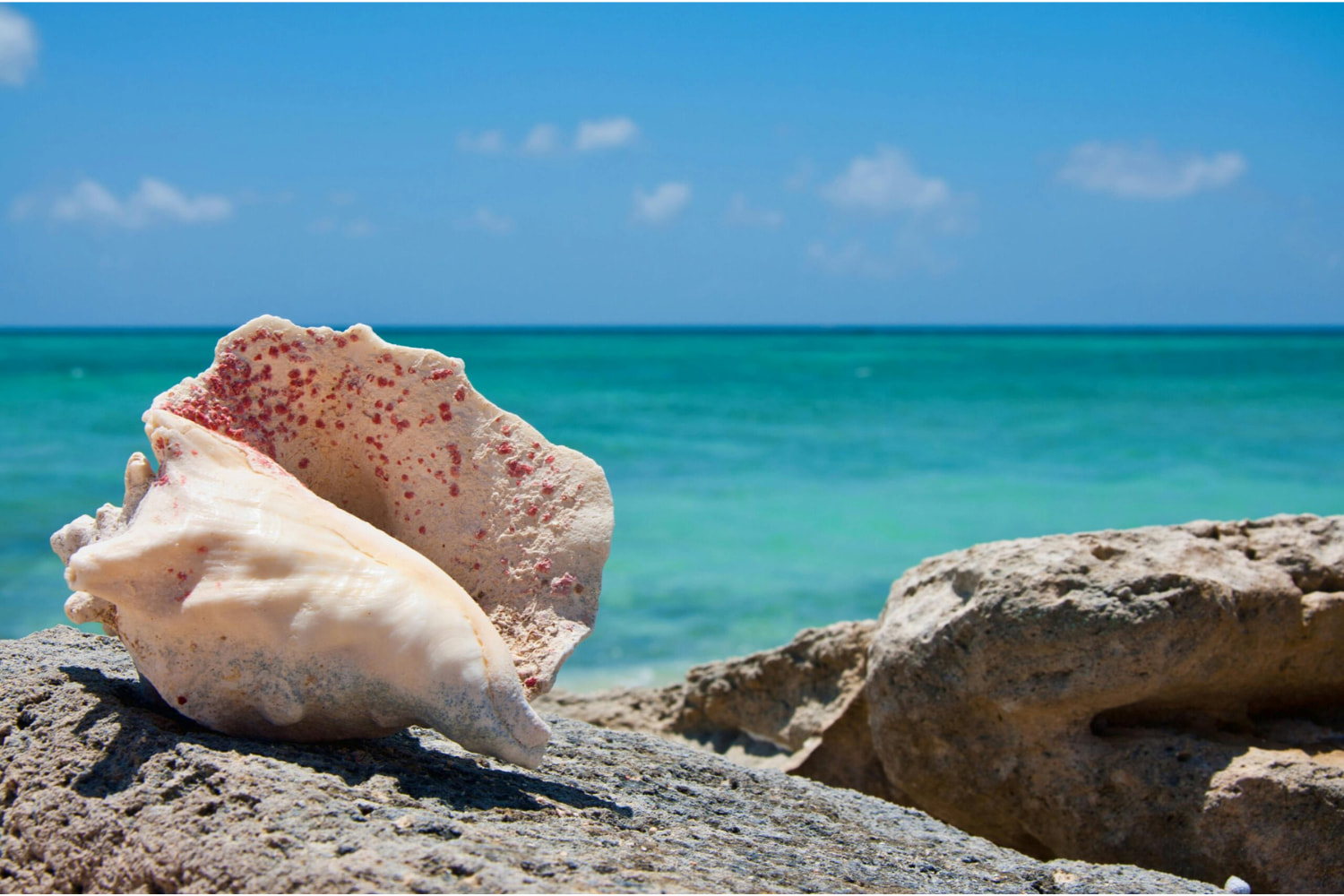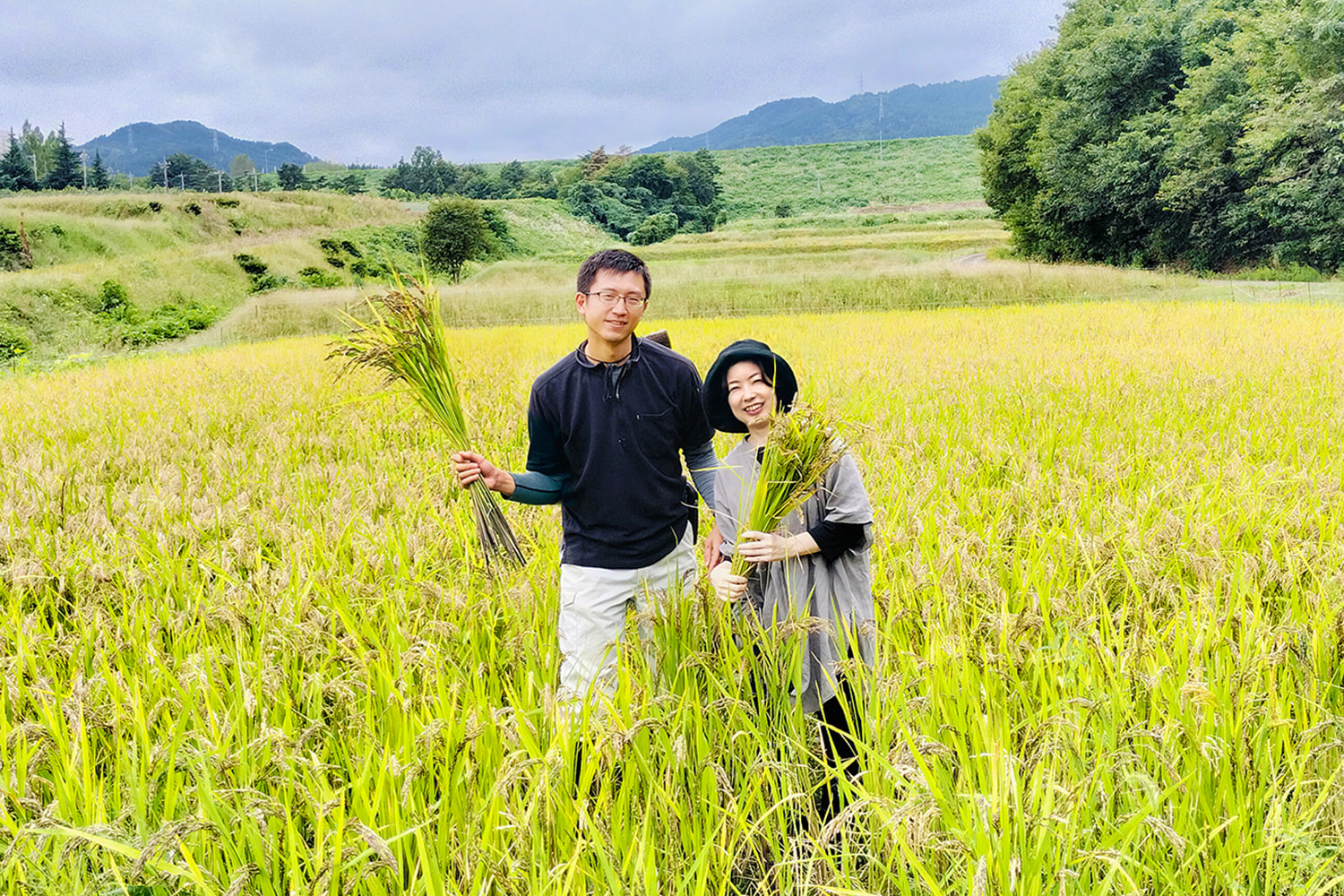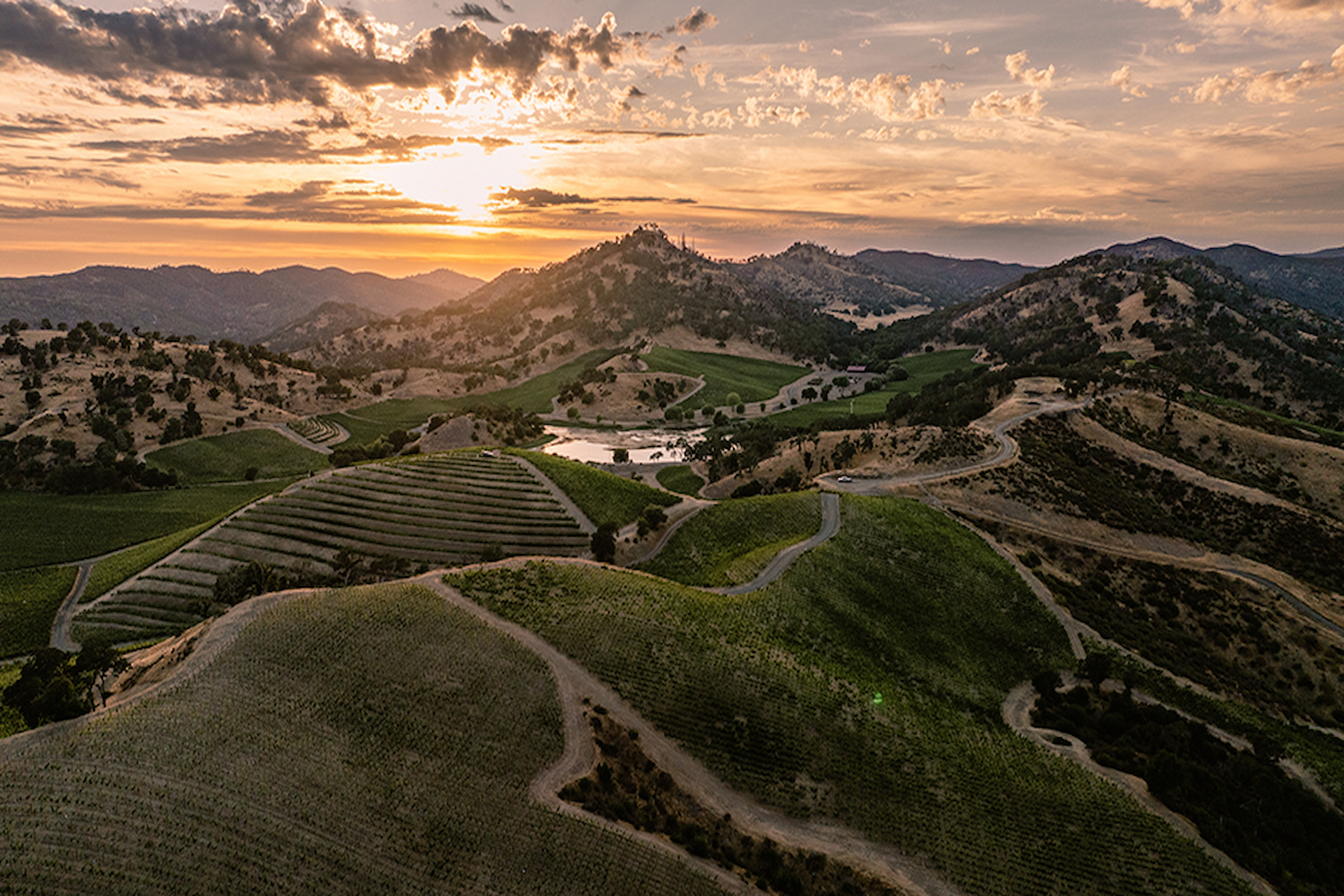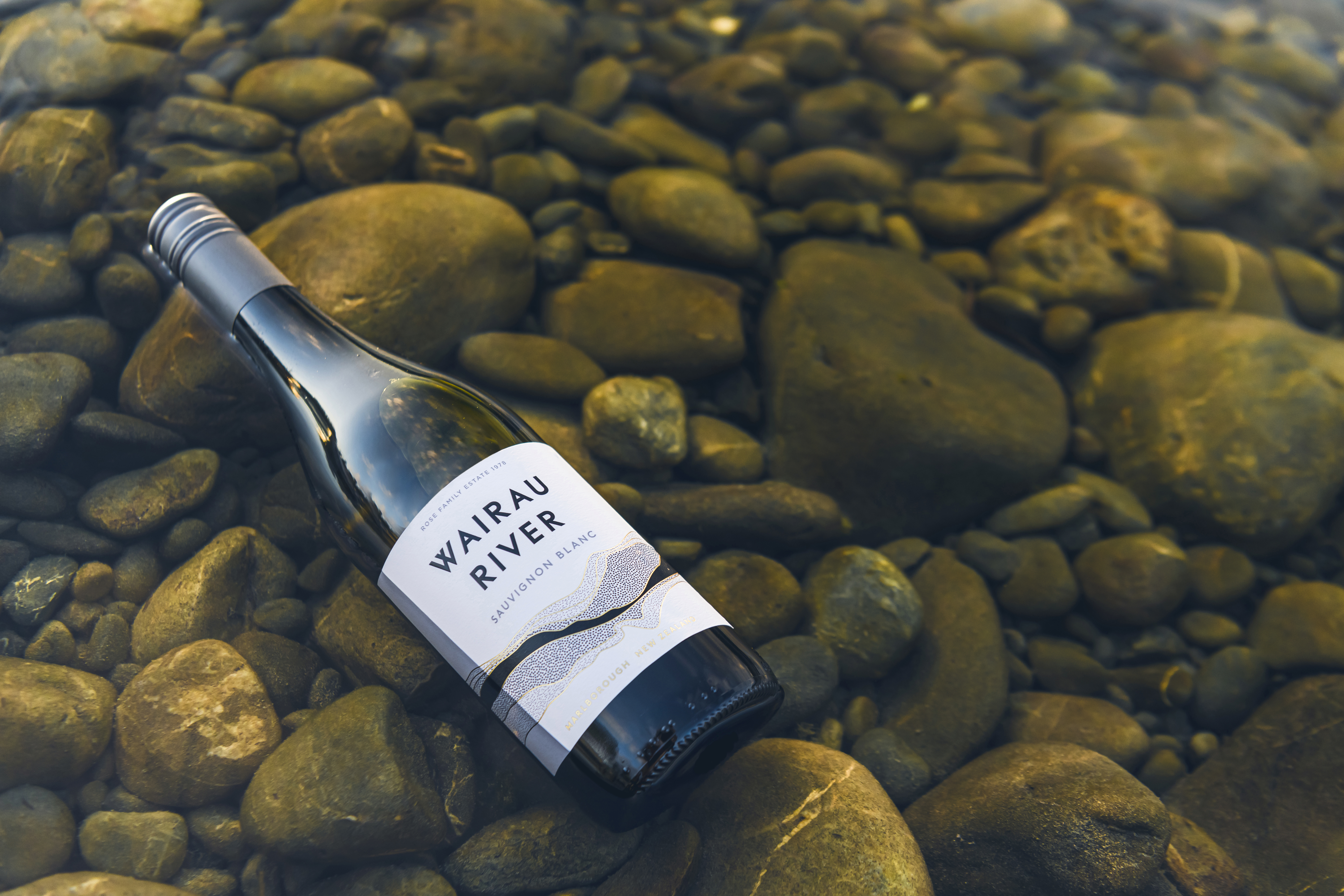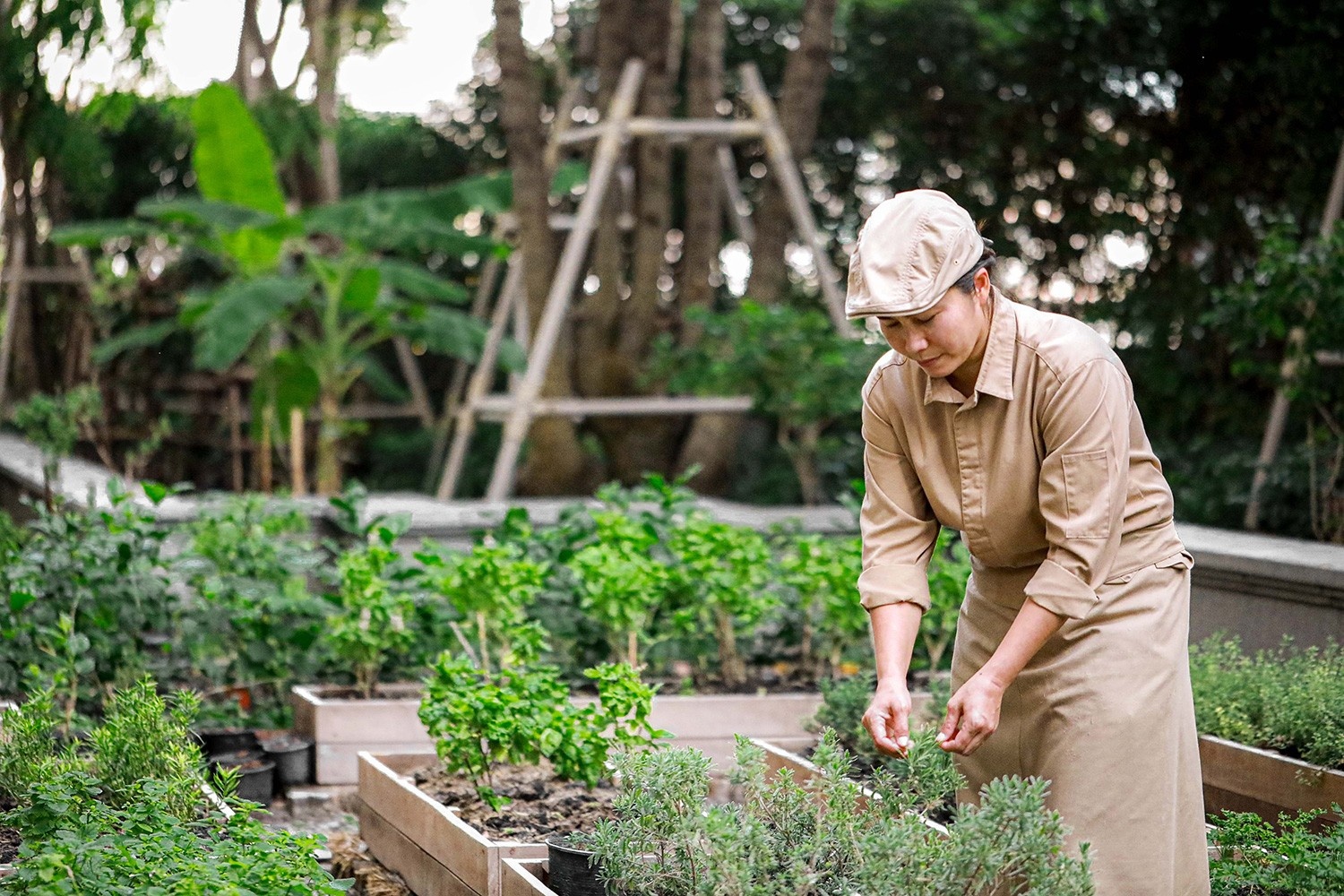North Stars:

Energy Efficiency

Production & Consumption

Wildlife Ecosystems
“It’s a tough muscle that needs to be treated with love. Do it right and it’s amazing.”
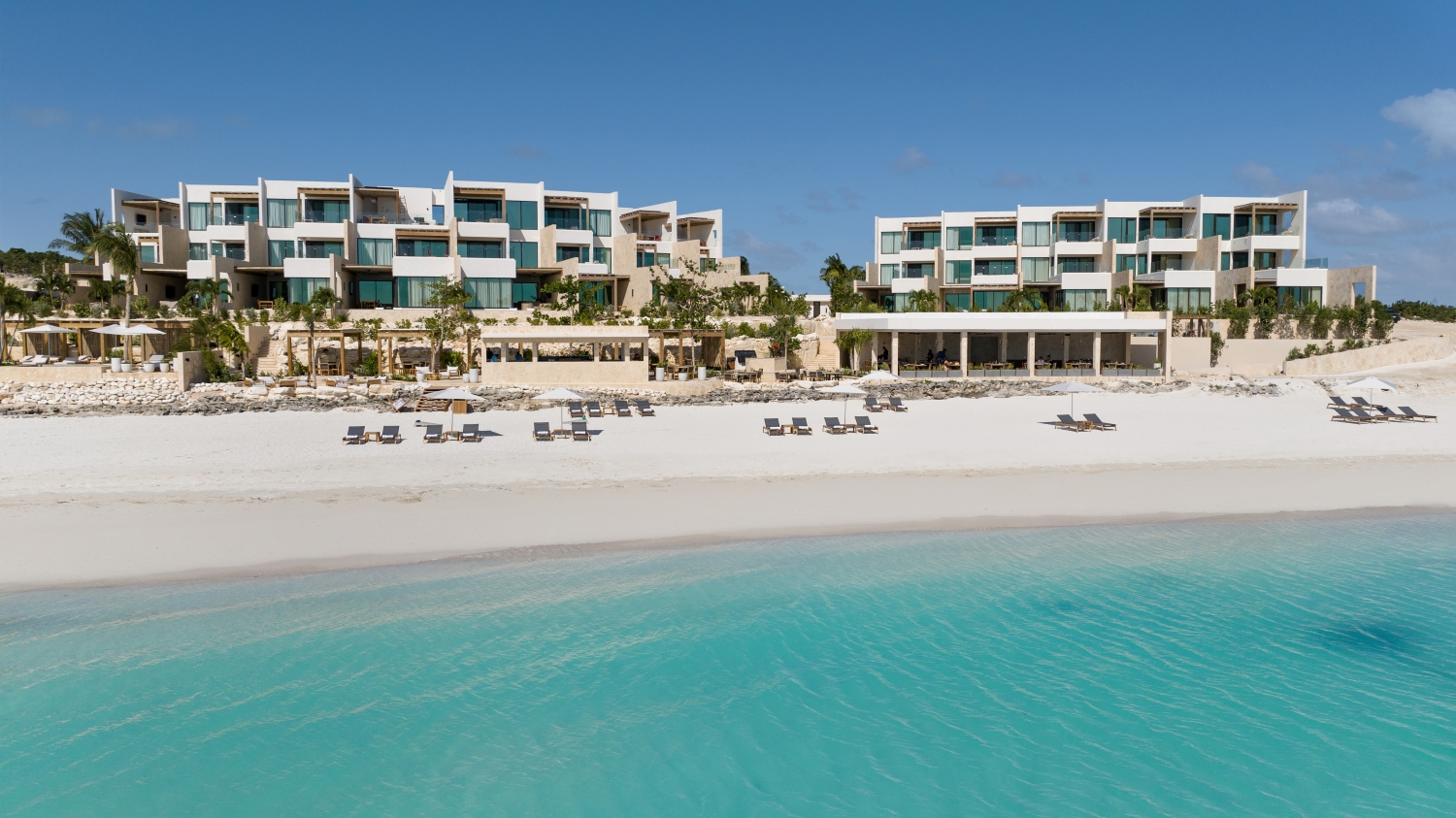
The Strand resort in Turks & Caicos.
The Azure Road Take
The water off the beach is a milky blue — the color of a polished opal. Its brilliance comes from the limestone-rich soil that defines this stretch of coastline on Providenciales, where The Strand sits perched above Cooper Jack Bay. Part luxury resort, part private residential enclave, The Strand blends modern architecture with one of the most comprehensive sustainability programs on the island.
I’m sitting in the shade of a pergola just off the edge of the hotel restaurant DelMar, watching Culinary Director Craig McNeil demonstrate how to break down a freshly cleaned conch. It’s part of a cooking class he offers on property, walking guests through how to make three of the island’s most iconic dishes: conch salad, cracked conch, and conch fritters. We’ve all had versions of these before — usually deep fried, buried in batter, or so rubbery the bits of conch bounce if they hit the floor. But McNeil is here to prove that conch can be something else entirely: versatile, tender, and deeply flavorful when handled thoughtfully.
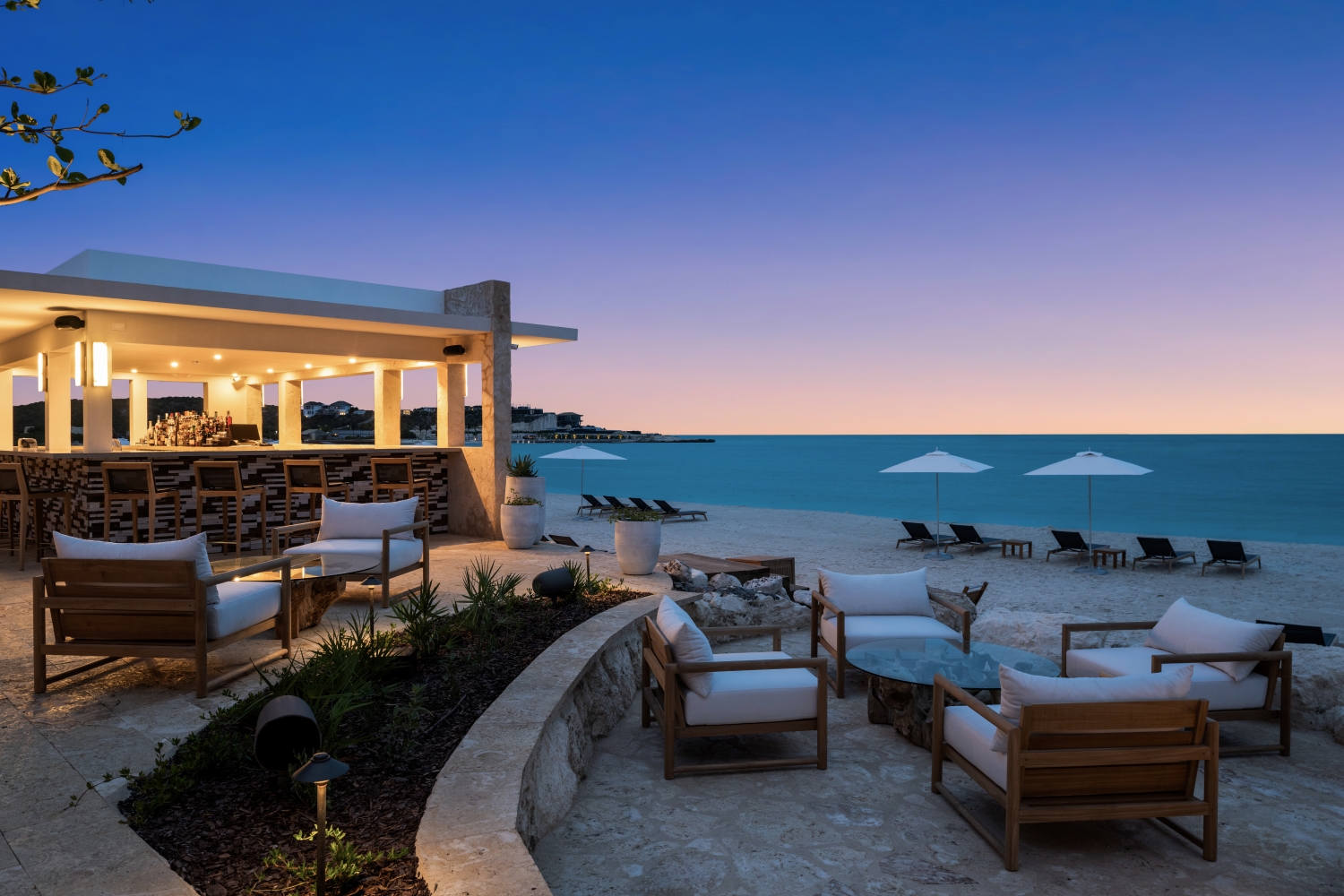
Beachside view from The DelMar Restaurant. Courtesy of The Strand.
Sustainability Chops
At The Strand, sustainability starts in the kitchen. The restaurant partners with local fishermen who follow sustainable best practices. Typically, McNeil buys conch straight off the beach from fishermen who catch it fresh.
However, conch itself is a species under pressure. “In the past, queen conch was plentiful in the waters around Turks and Caicos,” McNeil says. “Now, fishermen need to venture farther offshore to find them.”
While not officially listed as endangered, conch populations throughout the Caribbean have declined due to overfishing. Because the animals grow slowly and take years to reach maturity, they’re vulnerable to being harvested faster than they can reproduce. To help keep stocks healthy, Turks and Caicos enforces size limits, seasonal closures, and fishing quotas. “It’s available daily — weather permitting,” McNeil adds.
In the kitchen, McNeil uses every part of the animal. That low-waste mindset is reflected across the property. More than 75% of The Strand’s energy comes from solar, with each villa equipped with a Tesla Powerwall and community buildings powered by industrial-grade Powerpacks. A graywater irrigation system supports landscaping, and all lighting and appliances are tied to smart controls. The property is also the first certified pollinator sanctuary in the Caribbean, established in partnership with Colorado’s Butterfly Pavilion.
Those measures are notable given the challenges of operating sustainably on Providenciales. Power across the island is generated by diesel. Potable tap water is rare — many residents rely on bottled water — and there’s no central recycling or compost service. Nearly everything must be imported. These constraints make it difficult for many businesses to adopt better practices, which is part of what sets The Strand apart.
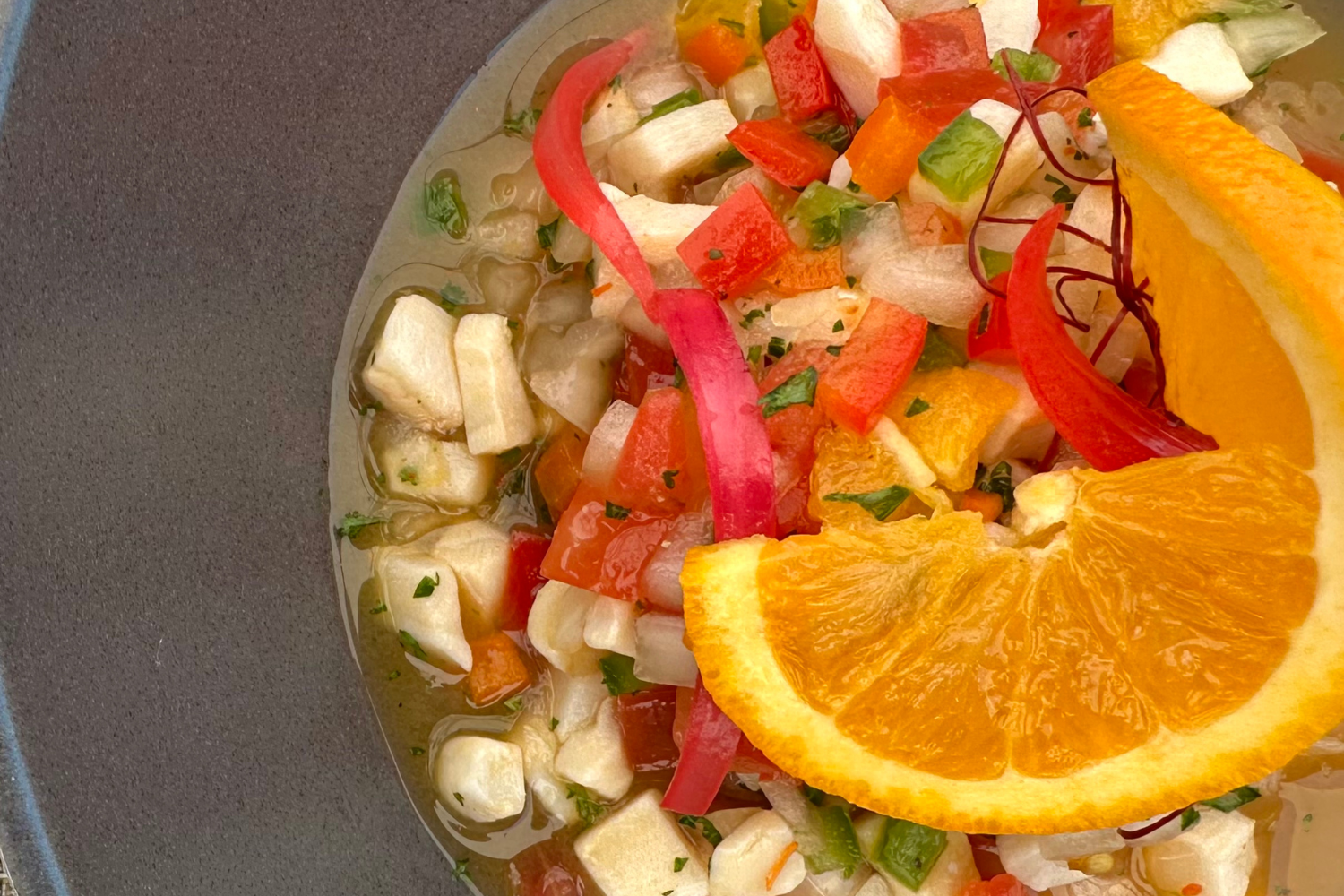
Fresh conch salad. Courtesy of Lauren Mowery.
The Bite
“Our conch is carefully prepared by separating it into two distinct cuts for the best texture and flavor,” says McNeil. “The crown, found at the top, has a firmer bite and is perfect for ceviche or blended into our house-made conch fritters. The foot is naturally more tender and is gently pounded before being grilled, sautéed, or lightly fried for our signature cracked conch.”
McNeil cleans and separates the flesh by hand. He starts with the fibrous and firm upper section, or the crown, for the conch salad.
He dices it finely and marinates it with tomato, cucumber, sweet pepper, and red onion, adding lemon, lime, and sour orange juice to brighten the flavor. Scotch bonnet or bird’s eye chili adds optional heat, and fresh herbs finish the dish. It’s served cold, with a spoonful of citrusy liquid pooling in the bottom of the bowl.
“I do like conch when prepared properly,” McNeil says. “It’s a tough muscle that needs to be treated with love. Do it right and it’s amazing.” He also points out its nutritional profile: “It is high in protein and low in fat and has zero carbs. The health benefits are huge.”
I take a bite. Perfection. The meat has the delicacy of a firm white fish, while the touch of heat from the chili and zip from the sour orange, work in harmony. It’s the best conch salad I’ve ever eaten, leaving me eager to taste the next dish.
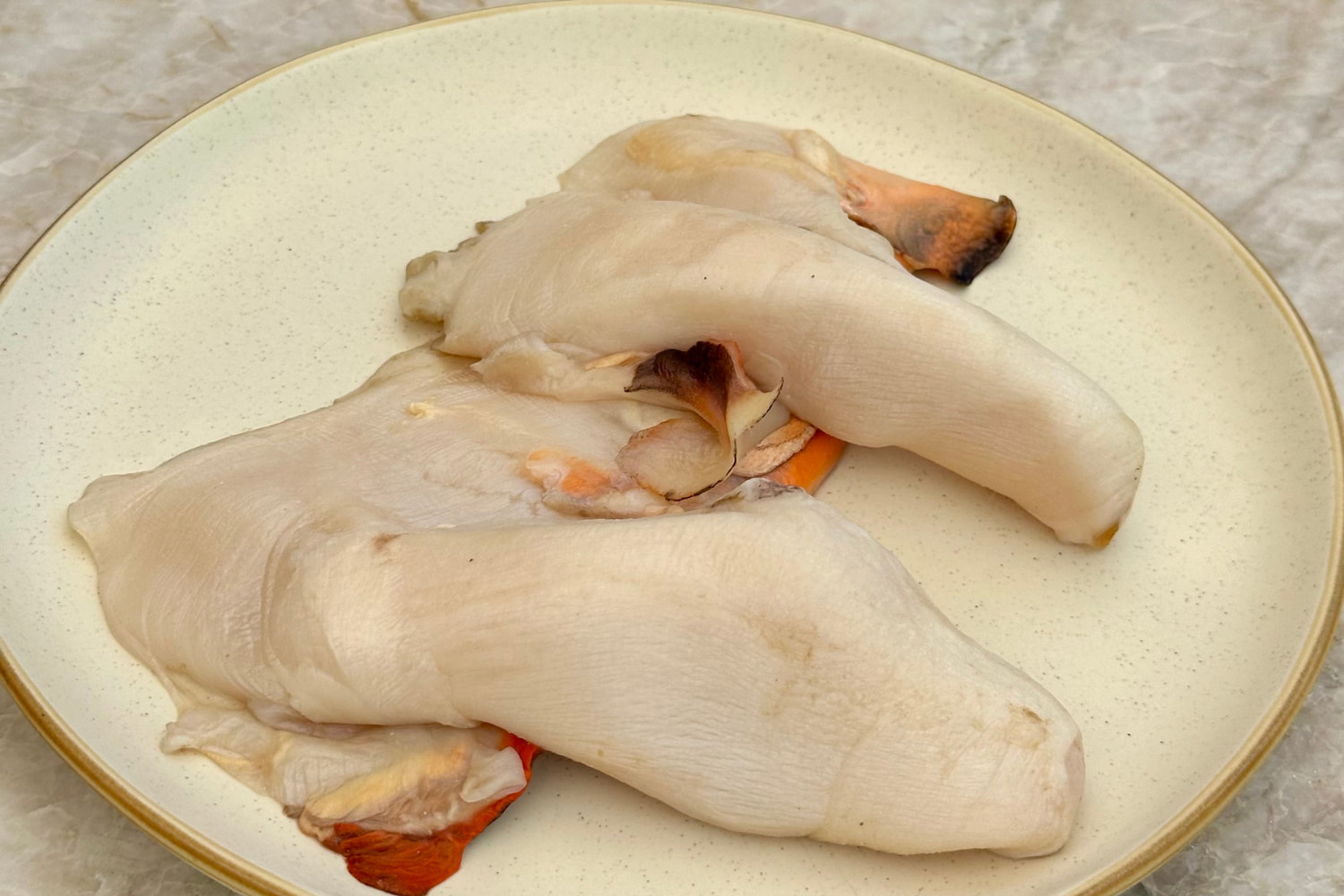
Raw conch before tenderized. Courtesy of Lauren Mowery.
For cracked conch, McNeil uses the foot — a naturally tender cut that still needs gentle pounding with a mallet to break down the muscle fibers. Once tenderized, it’s lightly battered and fried, but without the heavy coating that defines so many resort versions of the dish.
Again, McNeil nails it. The conch comes out gently fried with the lightest, airiest of batters, functioning as supporting actor than the lead. I can eat it without the usual greasy, heavy aftertaste typical of versions found around the Caribbean.
Finally, the crown meat gets repurposed again in conch fritters. Chopped and blended with vegetables and batter, it’s fried into crisp, golden rounds. The result is a snack that’s both savory and light — not weighed down by filler, but built around the flavor of the conch itself.
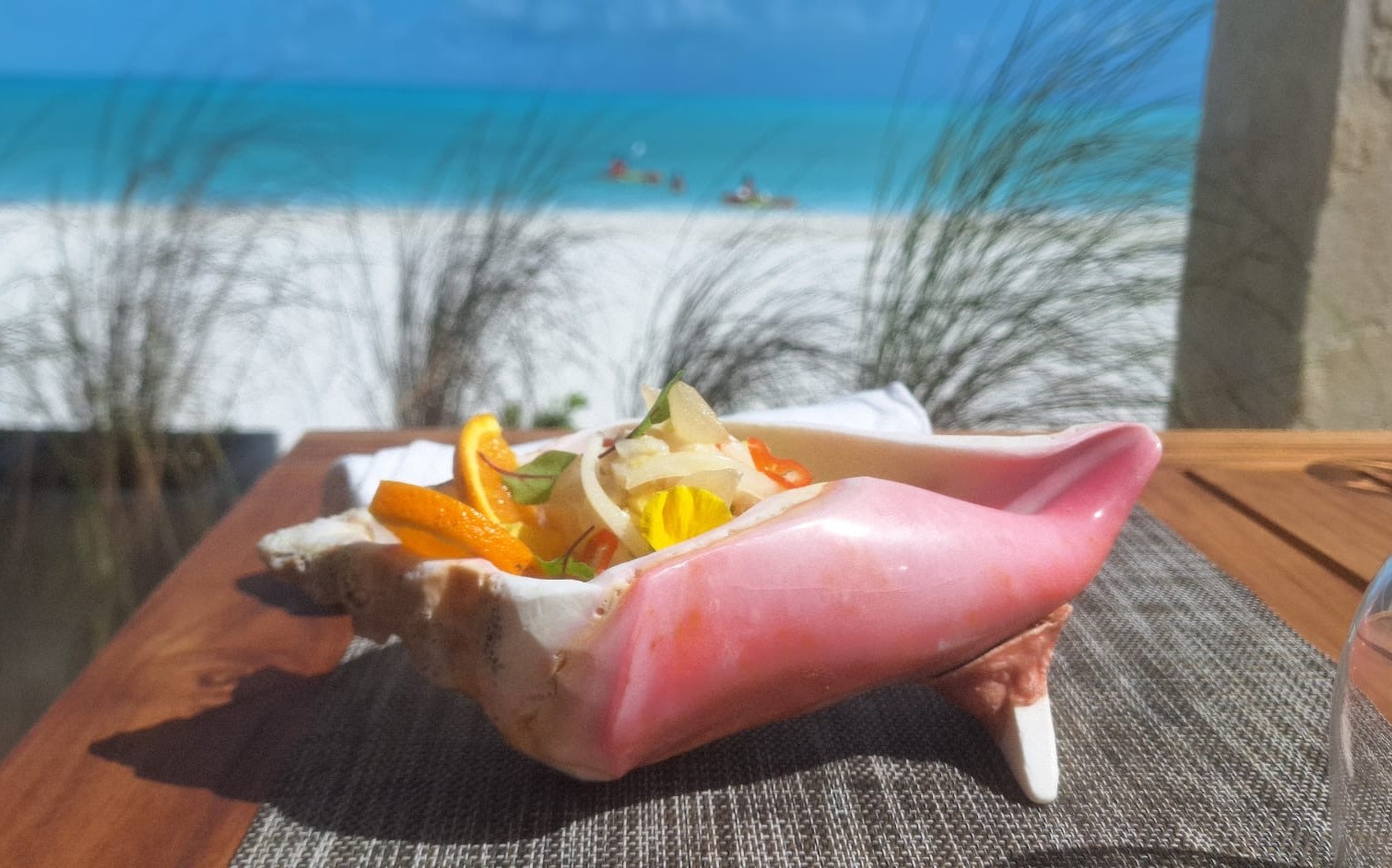
Chef Craig McNeil's conch salad. Courtesy of Craig McNeill.
Origin Story
McNeil didn’t grow up cooking with conch. “I had never used conch before I moved to TCI,” he says. “So it was basically just trial and error.” Early on, he learned to clean the meat under cold water, removing sand and slime, then evaluate it by texture. “You can feel which part needs to be tenderized more,” he says.
Originally from Scotland, McNeil spent much of his career in Florida, leading kitchens at The Dalmar in Fort Lauderdale, Fisher Island Club, and the Fontainebleau Hotel in Miami Beach. He first came to Turks and Caicos as a private chef to VIP clients, where he built relationships with local fishermen and suppliers. That time shaped his understanding of the island’s food systems — and how to work within their limitations to source better ingredients and reduce waste. Today, that experience informs everything he does at The Strand, from the menu to the conch class.
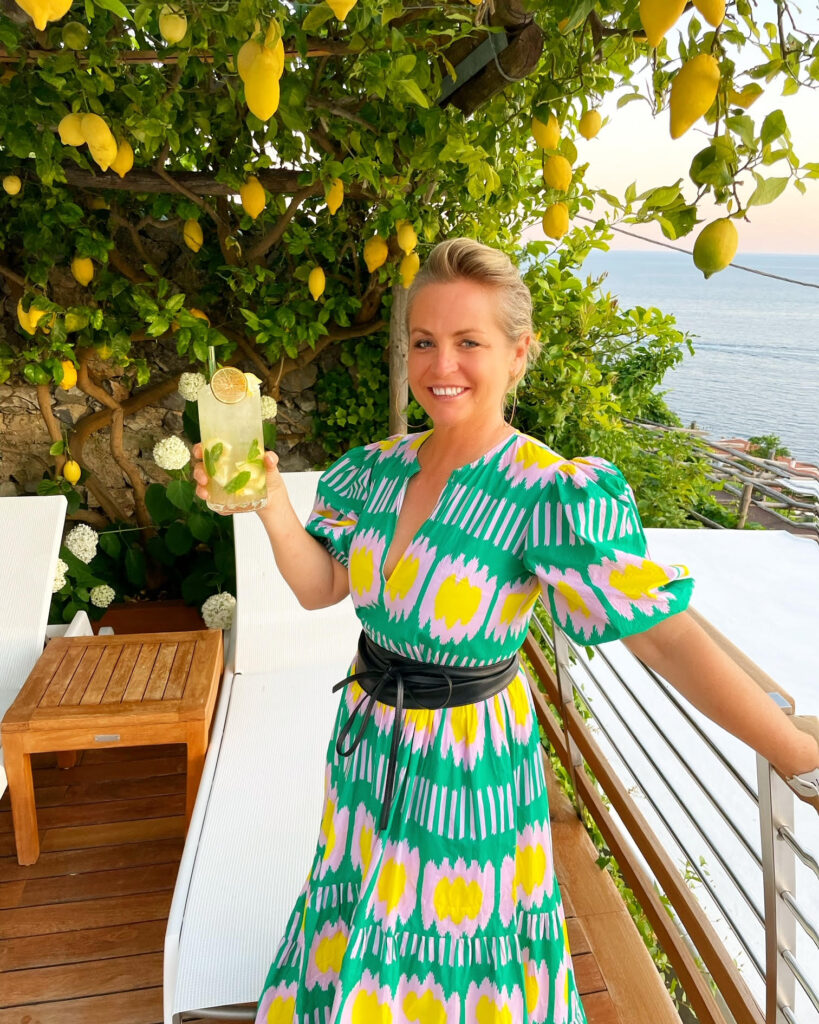
Founder and CEO of Azure Road, Lauren Mowery is a longtime wine, food, and travel writer. Mowery continues to serve on Decanter Magazine’s 12-strong US editorial team. Prior to joining Decanter, she spent five years as the travel editor at Wine Enthusiast. Mowery has earned accolades for her writing and photography, having contributed travel, drinks, food, and sustainability content to publications like Food & Wine, Forbes, Afar, The Independent, Saveur, Hemispheres, U.S. News & World Report, SCUBA Diving, Plate, Chef & Restaurant, Hotels Above Par, AAA, Fodors.com, Lonely Planet, USA Today, Men’s Journal, and Time Out, among others.
Pursuing her Master of Wine certification, she has also been a regular wine and spirits writer for Tasting Panel, Somm Journal, VinePair, Punch, and SevenFifty Daily. Mowery is a graduate of the University of Virginia and Fordham Law School, and she completed two wine harvests in South Africa.
Follow her on Instagram @AzureRoad and TikTok @AzureRoad
North Stars: Energy Efficiency, Production and Consumption, Wildlife Ecosystems


